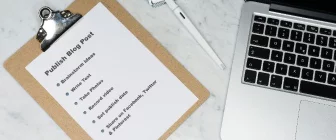
As a freelance writer, it’s important that you understand the basics of keyword optimization. You may find yourself working on an assignment for a client where you’re expected to write content based around a keyword, or you could decide to start your own website or blog. Knowing how to keep your article on Google’s good side will ensure articles get the decent ranking they deserve while keeping your reputation unsullied.
Density Goes the Way of the Dodo
When using keywords in an article it is important to consider how your writing will look from Google’s perspective. If it looks “spammy” or poorly written, Google’s Panda algorithm (released back in 2011) will penalize it. And now that Panda has been incorporated into the Google’s core algorithm, the emphasis must definitely be quality over keyword.
On-Page SEO and the ‘Natural Keyword’
 On-page SEO deals with the material you want the search engine to rank. It includes both the content and the HTML source code. When writing an article that uses keywords you have likely already chosen a few phrases or words to focus on. Now it is time to infuse these keywords and phrases throughout the page naturally. This means thinking of the reader and his experience instead of the Google algorithm. Avoid keyword stuffing (repeating the same phrase at the expense of flow) and random placement of keywords (like at the end of a paragraph or at the bottom of an article just to increase the keyword count).
On-page SEO deals with the material you want the search engine to rank. It includes both the content and the HTML source code. When writing an article that uses keywords you have likely already chosen a few phrases or words to focus on. Now it is time to infuse these keywords and phrases throughout the page naturally. This means thinking of the reader and his experience instead of the Google algorithm. Avoid keyword stuffing (repeating the same phrase at the expense of flow) and random placement of keywords (like at the end of a paragraph or at the bottom of an article just to increase the keyword count).
Ideal Use of Keywords in Today’s SEO
The Keyword-optimized article is still a powerhouse for online content writers, as long as you utilize the keyword or phrase in a way that emphasizes user-experience over analytics. Having said that, however, you can make your article more appealing to Google by considering the following advice:
- Use the keywords in your content at five crucial points: the MetaData (Title and Description), Headings, Image Titles, Article Title and then once per section if possible. This will give your article the needed keyword inclusion without over-doing it.
- Be specific. Since Panda’s release, Google has had a thing for specialized websites, giving them a higher rank. It only makes sense that if you’re using a keyword, the more specific the better, particularly if you’re writing for a company that is in its own niche.
- Be creative. Writing an article around a keyword doesn’t mean it needs to be dry or monotonous. Any subject can be made interesting by using your imagination. Write the article from a different perspective or add a little of your individual style.
- Be honest. In reality, not all keyword phrases can be turned into a masterpiece. If a client asks you to write a quality keyword article around the phrase “mechanics Los Angeles” you’re in for a difficult task. In this case you can try to talk the client into tweaking the keyword phrase to one that sounds more natural. Many business owner’s don’t know a lot about Google analytics or its new preference for quality over keyword density.
The best advice for the website content writer is to put your energy into writing a genuine article with relevant and interesting information. Infuse keywords naturally and be smart about your choice of keyword. Google will take care of everything else.
